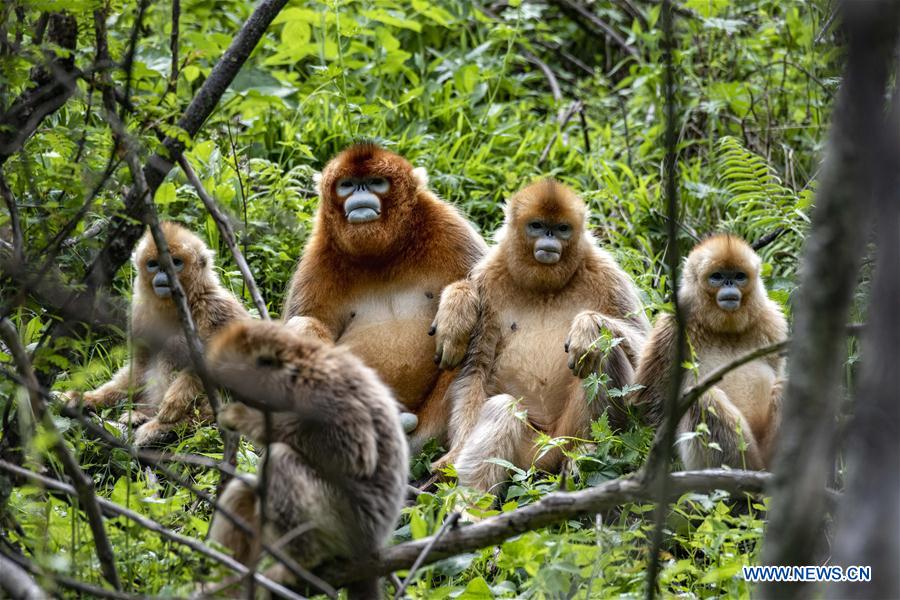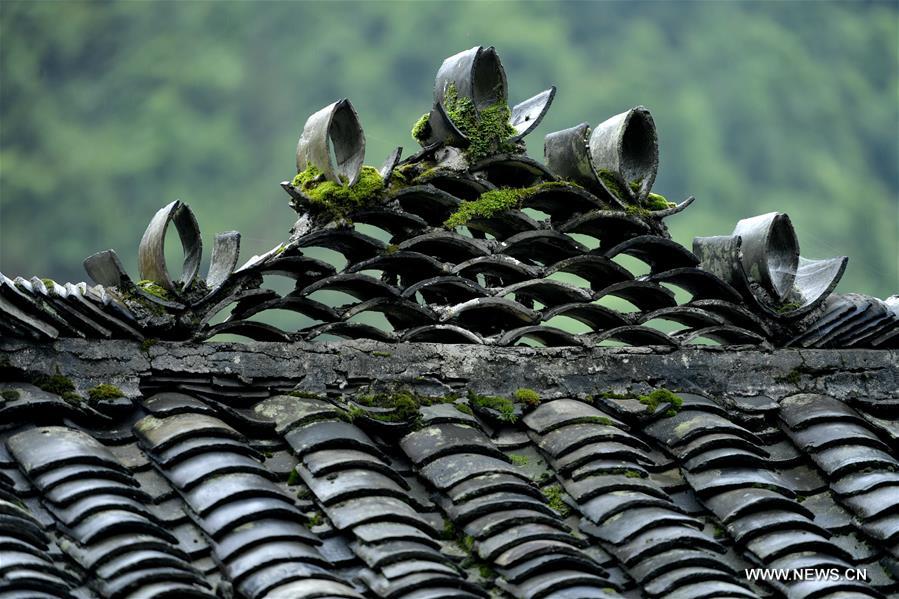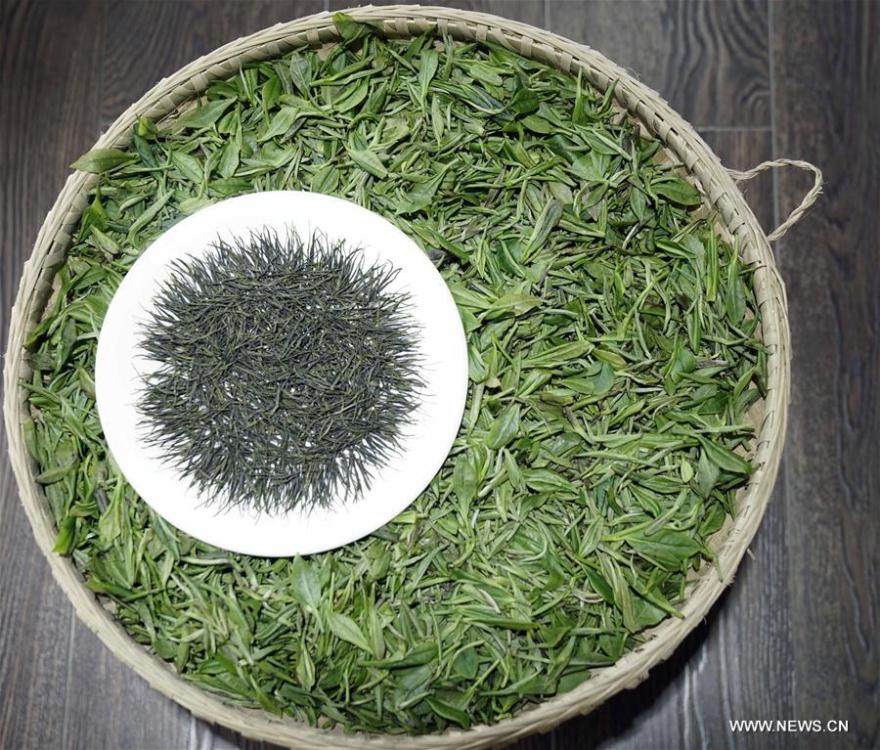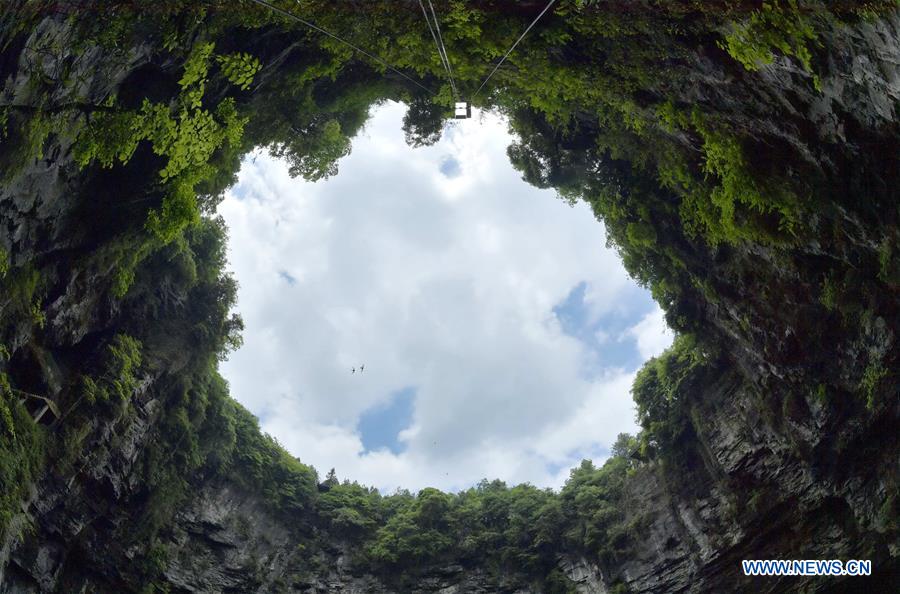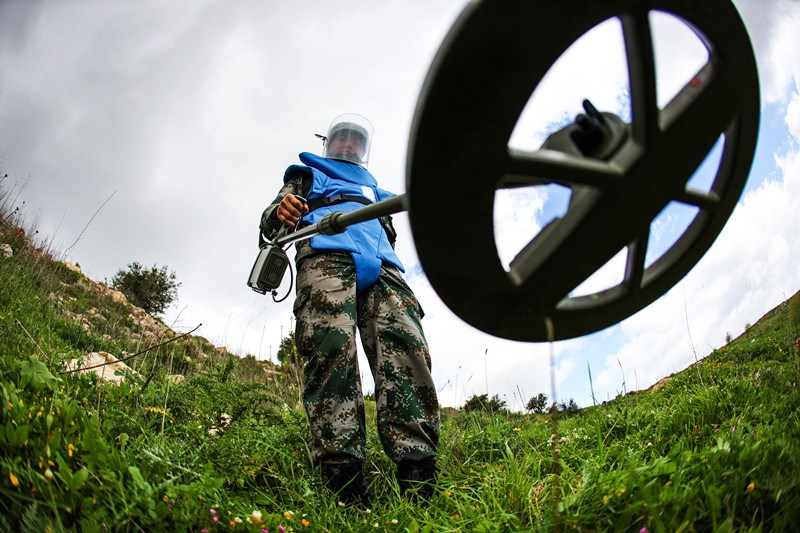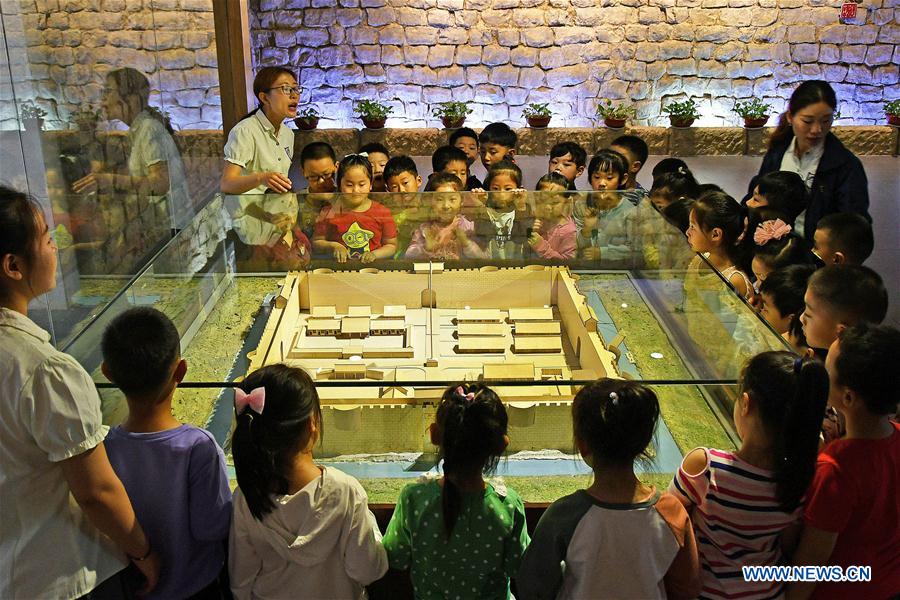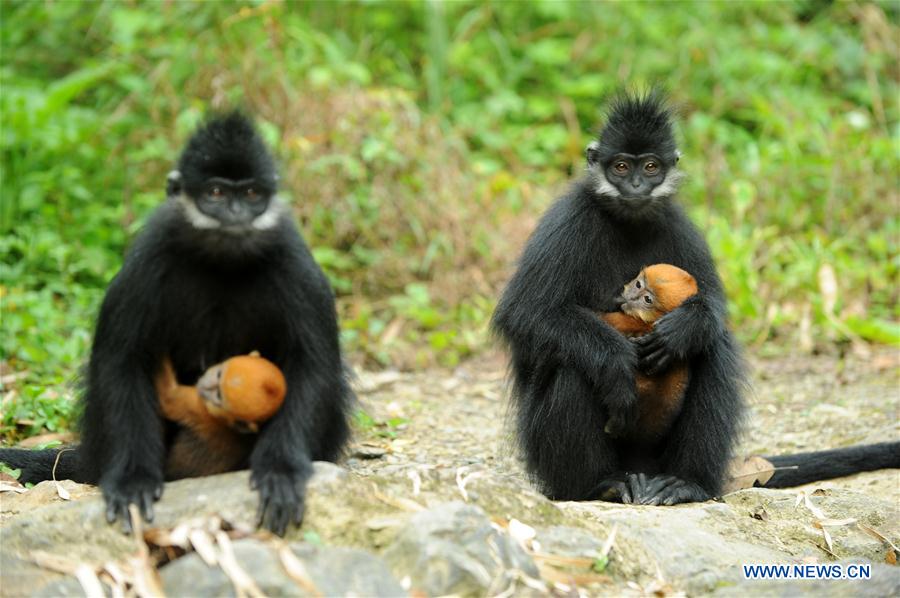Hanging on a 100-meter-tall cliff in Beijing's Miyun district, more than 600 beehives provide homes for apis cerana - the eastern honey bee.
A spectacular view for visitors, this cliff-style apiary, the biggest in China, plays a key role in protecting this native species.
Cherished as the "panda among bees" for their rarity, eastern honey bees are being pushed to the brink of extinction in China due to the rise of Italian bees, a deadly foe that was introduced a century ago.
As the native bee plays an irreplaceable role in maintaining the balance of local mountainous ecosystems, the government has focused a great amount of time and energy on protection efforts.
Since eastern honey bees live on cliffs that are at least 100 meters high, the tall cliffs of Miyun were chosen last year as the perfect place to cultivate a natural environment for the bees, while experts, nicknamed the "bee nannies," were hired to provide technical guidance.
Establishing the apiary required not only professional skills but also physical strength. As the hives had to be installed on high cliffs, beekeepers had to walk several hours along steep mountain trails with heavy boxes full of bees on their backs.
It took more than 20 "spidermen" to install all the hives on the cliff. These workers are also tasked with harvesting honey, as the hives are only reachable by rope.
Despite some of the risks involved, honey production has played a key role in relieving poverty in the region.















